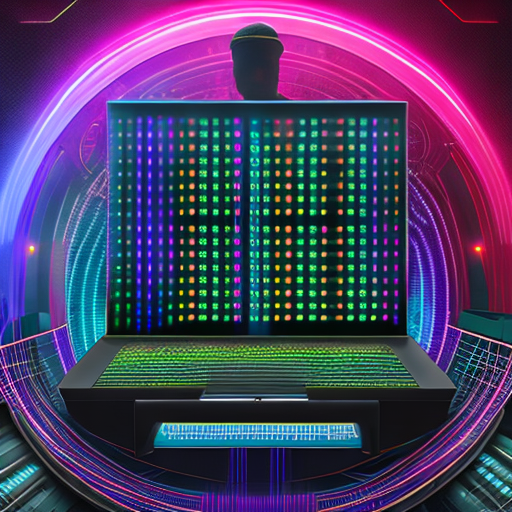 06 May
06 May
Are you a software developer struggling to keep up with the relentless demands of modern projects? Do you find yourself spending countless hours on repetitive coding tasks, yearning for a more efficient solution? Artificial intelligence (AI) agents are rapidly changing the landscape of software development, offering automated code generation capabilities. However, this powerful technology comes with significant ethical implications that need careful consideration before widespread adoption. Ignoring these concerns could lead to serious consequences impacting both developers and users.
AI code generation tools, powered by large language models (LLMs) like OpenAI’s Codex or GitHub Copilot, are becoming increasingly sophisticated. These agents can translate natural language descriptions into functional code snippets in various programming languages. This represents a fundamental shift in how software is created – moving from manual writing to a collaborative process with an AI partner. Recent estimates suggest that the market for AI-powered coding assistants could reach billions of dollars within the next few years, driven by increasing demand for developer productivity and automation.
While the benefits of AI code generation are undeniable, it’s crucial to acknowledge and address the ethical challenges. These aren’t simply technical problems; they touch upon issues of fairness, responsibility, and intellectual property. Let’s delve into some key areas of concern.
LLMs are trained on massive datasets – often scraped from the internet. This data can contain inherent biases reflecting societal prejudices related to gender, race, or other protected characteristics. Consequently, AI code generation tools may inadvertently reproduce and amplify these biases within the generated code. For example, a tool might generate code that favors certain demographic groups when creating user interfaces or algorithms based on biased training data. A recent study by Carnegie Mellon University demonstrated bias in GitHub Copilot’s suggestions when prompted with queries related to gendered roles.
A significant debate surrounds the ownership of code generated by AI agents. Does the copyright belong to the user who provided the prompt, the developers of the AI model, or does it reside in some nebulous legal grey area? Current legal frameworks are struggling to adapt to this new reality. Some argue that if a developer heavily modifies AI-generated code, they retain ownership rights. However, if the AI generates substantial portions of the code without significant human input, questions arise about copyright infringement, particularly when using training data scraped from open-source repositories.
When an AI agent produces faulty or insecure code that leads to a system failure, who is accountable? Is it the developer who used the tool, the company that deployed the software, or the developers of the AI model itself? Establishing clear lines of responsibility is paramount. Consider this scenario: A banking application utilizes AI-generated code for fraud detection. If the AI incorrectly flags legitimate transactions as fraudulent (due to bias or a flaw in its training), who bears the legal and ethical consequences – the bank, the software vendor, or the AI provider?
The increasing automation of code generation raises concerns about the future role of developers. While many argue that AI will augment rather than replace developers, there’s a valid worry that it could lead to job displacement, particularly for junior programmers involved in repetitive coding tasks. Furthermore, developers need to adapt their skillsets to effectively utilize and oversee AI agents, requiring new expertise in prompt engineering, model evaluation, and bias mitigation.
AI-generated code may introduce security vulnerabilities if the underlying models haven’t been adequately vetted for potential weaknesses. Because these systems are trained on vast amounts of data, they can inadvertently learn and reproduce common coding errors or security exploits. A poorly designed AI agent could generate code that is susceptible to SQL injection attacks or other malicious activities, posing significant risks to software applications.
| Strategy | Description | Example |
|---|---|---|
| Human Oversight & Validation | Always review and thoroughly test AI-generated code before deploying it. | A developer meticulously examines all suggestions from an AI agent, running unit tests and performing security audits. |
| Bias Detection & Mitigation Techniques | Employ techniques to identify and address potential biases in training data and generated code. | Using tools that analyze the model’s output for demographic skewness or unfair outcomes. |
| Clear Ownership and Licensing Agreements | Establish clear agreements regarding copyright ownership and usage rights for AI-generated code. | Defining terms in a contract specifying that the user retains ownership of any modifications made to the AI’s output. |
| Prompt Engineering Best Practices | Craft prompts carefully to guide the AI towards desired outputs and reduce unintended biases. | Using specific, unambiguous language in prompts to avoid ambiguity and steer the model toward ethical outcomes. |
Several companies are exploring the use of AI code generation tools. At Microsoft, GitHub Copilot is integrated into Visual Studio Code, assisting developers with billions of lines of code daily. However, concerns have been raised about potential biases and intellectual property issues related to the training data used by Copilot. Furthermore, some open-source projects have experienced instances where AI-generated code introduced vulnerabilities that were subsequently discovered and patched.
AI agents hold immense promise for transforming software development, but their responsible adoption demands a proactive approach to ethical considerations. Addressing bias, clarifying intellectual property rights, establishing accountability frameworks, and preparing developers for the changing landscape are crucial steps. By embracing a cautious and thoughtful strategy, we can harness the power of AI code generation while mitigating its potential risks, ultimately fostering a more equitable and secure future for software development.
0 comments